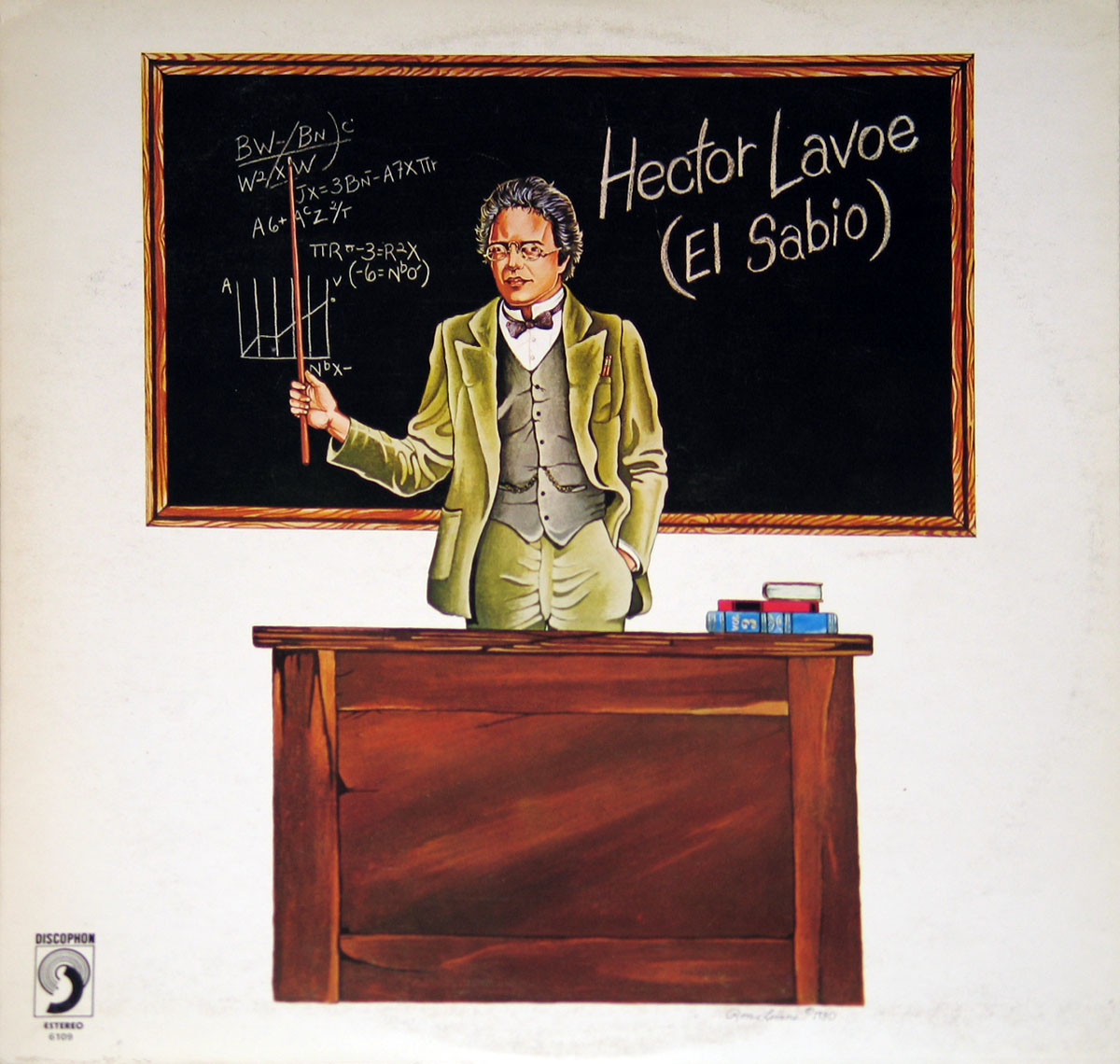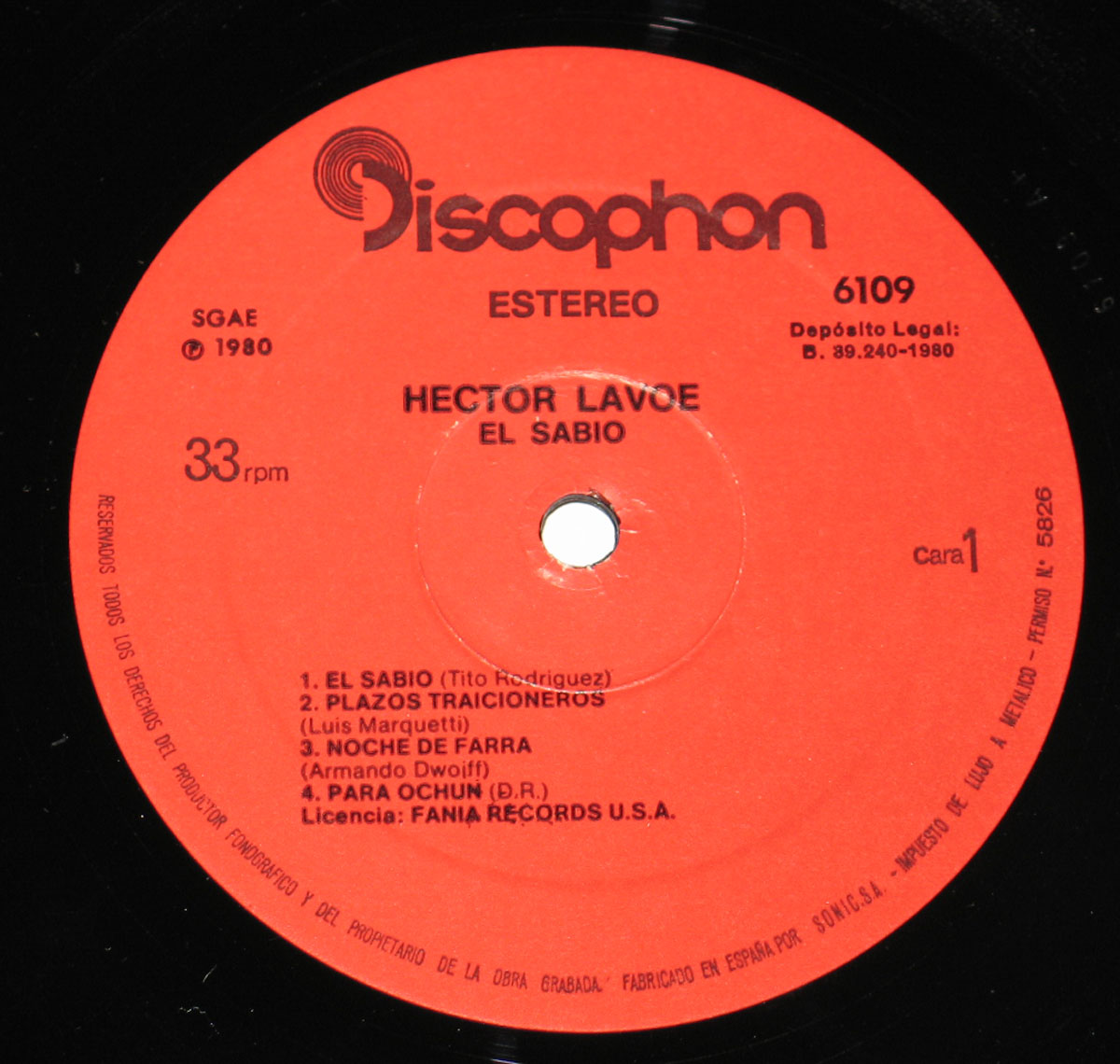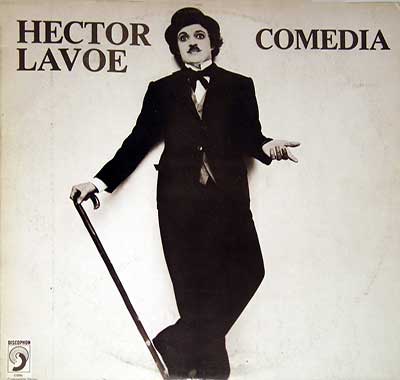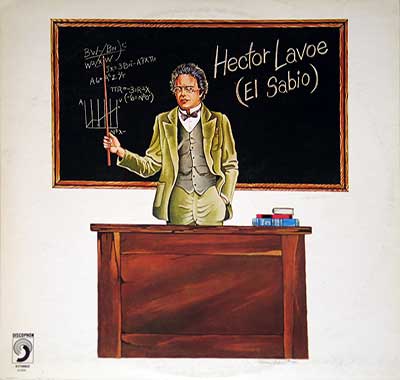"El Sabio" Album Description:
HŽctor Lavoe's "El Sabio" is a remarkable 12" Vinyl LP album that stands as a testament to the vibrant salsa scene of the late 1970s and early 1980s. Released in 1980 in Spain, this production is a collaboration between the iconic figures of Willie Col—n and Jerry Masucci, both of whom played pivotal roles in shaping the golden era of salsa music.
The time period in which "El Sabio" emerged is crucial to understanding its cultural and musical significance. The late 1970s marked a period of evolution for salsa, a genre deeply rooted in the Afro-Caribbean traditions. It was during this time that salsa began to incorporate diverse elements, embracing a fusion of styles that transcended geographical boundaries. HŽctor Lavoe, often referred to as the "Voice of Salsa," was a central figure in this transformative phase.
Willie Col—n and Jerry Masucci, as producers, brought their distinctive touch to the album. Col—n, a renowned trombonist, composer, and arranger, was a key figure in the New York salsa scene. His innovative arrangements and skillful use of brass instruments added a dynamic layer to Lavoe's vocals. Masucci, co-founder of Fania Records, played an instrumental role in shaping the careers of many salsa legends. The collaboration between Lavoe, Col—n, and Masucci on "El Sabio" represented a fusion of talent that elevated the album to a masterpiece.
The production of the album reflects the technological and artistic advancements of the time. The use of analog recording equipment, characteristic of the era, imparted a warm and rich sound to the music. Lavoe's vocals, accompanied by the vibrant arrangements of Col—n, created a sonic tapestry that resonated with audiences worldwide.
"El Sabio" showcases Lavoe's mastery of storytelling through music. The lyrics delve into themes of love, life, and the human experience, delivered with a depth and emotion that became Lavoe's signature style. The album's title track, "El Sabio," is a testament to Lavoe's poetic lyricism and his ability to convey profound messages within the framework of salsa.
In the context of the European release in 1980, it's important to recognize the global impact of salsa music during this period. The genre had transcended its Latin American roots to captivate audiences in Europe and beyond. Lavoe's "El Sabio" found a receptive audience in Spain, contributing to the globalization of salsa and further establishing its status as a world music phenomenon.



